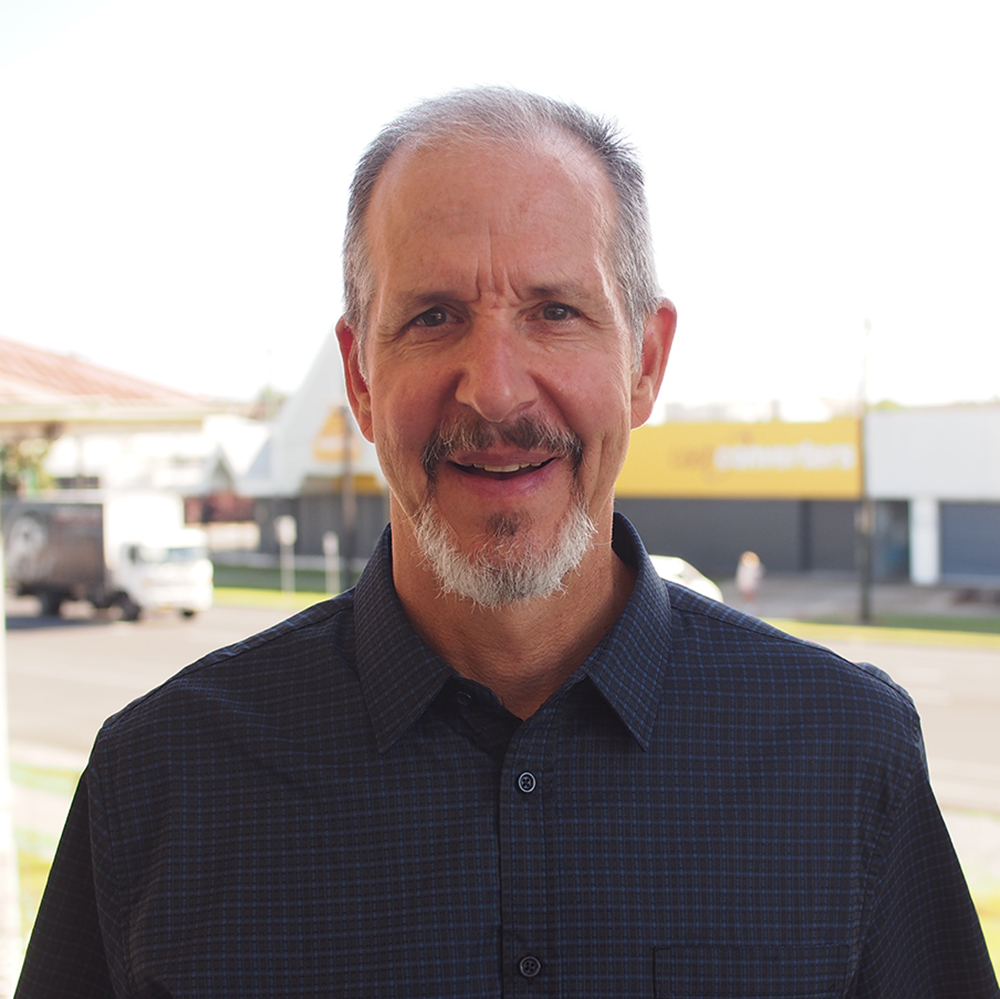
Jerry Buckland is not only a Professor of Economics and International Development at Mennonite University in Canada, but he’s also a great friend of ICAN. Jerry recently bid farewell to the Canadian winter and embraced the tropics of Cairns for a six-week volunteering stint with ICAN.
G’day Jerry – welcome back to Australia!
What interested you in volunteering with ICAN?
I learned about ICAN in 2016 and, during my last research leave from my university. I was invited to visit Cairns in November that year. I met with ICAN CEO Aaron Davis and Research Manager Carmen Daniels, and learned about the exciting and important work that ICAN is involved in. To better understand the region, Indigenous financial counselling, and ICAN’s work, my hosts took me to visit Wujal Wujal, and to Lockhart River further up Cape York. As far as I know there is nothing like ICAN’s program in Canada.
I kept in touch with ICAN since then and, when my next research leave came up for 2023-24, I was able to arrange another visit.
Can you tell us about the work you’re doing back in Canada ?
I teach sustainable development and microfinance in a business school at Canadian Mennonite University, a small liberal arts and sciences university in Winnipeg, Canada. My research focuses on financial inclusion and financial capability, among low-income people, in Canada and around the world.
How is your work with the Canadian Financial Diaries going?
The Canadian Financial diaries research project has been running since the end of 2017. We have completed data collection with 80 participants who we worked with, on a weekly/bi-weekly/monthly basis for 6 to 12 months. We have written many reports, articles, and contributed to one book. We have learned many things including, low-income people are very financially capable; social connections are an important way in which people with limited assets manage their finances; and, trauma influences how some diarists think, or don’t think, about their futures.
What differences do you see between the Australian and Canadian approach to Financial Wellbeing?
I think that some of the same work is done in both countries but the financial counselling sector in Australia is more structured than Canada. In Australia there are associations, training colleges, and a community of practitioners. In Canada we have a more mixed sector that includes credit counsellors, financial literacy trainers, and financial empowerment workers. We don’t have professional associations or training colleges in Canada like you have here.
The work in Australia on Indigenous financial counselling is quite unique and I am not aware of similar work in Canada.
Where do you see the future of Australian financial literacy and inclusion heading?
I’m not sure but I think that more exchanges between Australia and Canada could benefit both countries.
Will any of the knowledge you’re gaining in Australia serve your work in Canada?
Absolutely. Colleagues in Canada will be very interested to learn about the professionalisation of financial counselling in Australia.
OK, we have to ask – how are you enjoying FNQ – have you spotted a croc yet?
My wife Tracey and I are just loving our time in Cairns and Queensland. The weather when we left Winnipeg was minus 20 Celsius, snowing, and windy — we’ve really enjoyed the transition to the hot rainy season! We haven’t seen any crocs yet but there’s still time!
Check out more Yarn stories featuring Jerry here: